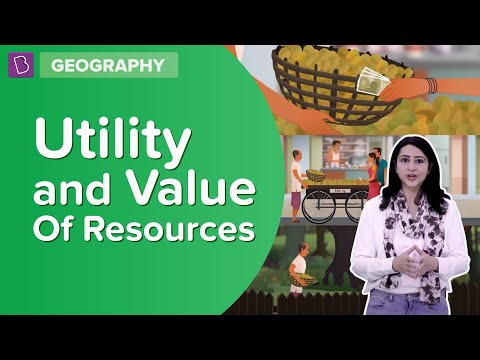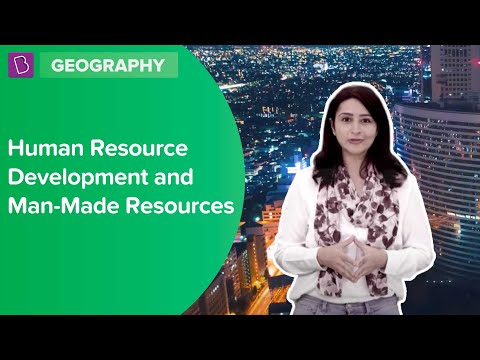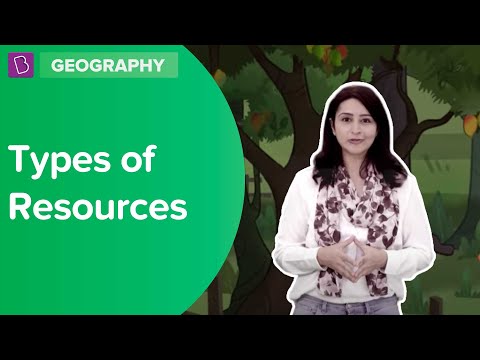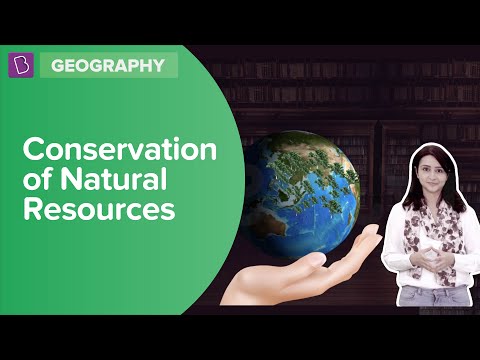Water, electricity, rickshaw, vegetable and textbook have something in common. They have all been used by you, so they have utility. Utility or usability is what makes an object or substance a resource. Want to know how things become resources? Things become resources only when they have value. Value means worth. Some resources have economic value, some do not. Some may become valuable over a period of time. Students can learn more about the various concepts related to the topic resources from Chapter 1 of CBSE Class 8 Geography book. Revise properly for the exam by browsing through the CBSE Notes Class 8 Geography Chapter 1- Resources.
Find the downloadable link below in this article to click and access these CBSE Class 8 Notes of Geography Chapter 1.
Download CBSE Notes Class 8 Geography Chapter 1- Resources PDF
Resources
Anything that can be used to satisfy a need or has value can be called a resource. Water, electricity, rickshaw, vegetable and textbook all have utility and hence are considered as resources. All the resources have value or worth. Some resources have economic value, some do not. Some may become valuable only over a period of time. For example, your grandmom’s home remedies may not have commercial value at present but if they are patented and sold, they could also become economically valuable. Meanwhile, the two factors that change substances to resources include time and technology.
For more information on Resources , watch the below video

Types of Resources
Resources are of 3 kinds- natural, human made and human.
Natural Resources are drawn from nature and are used without much modification. Examples include the air we breathe, water in our rivers and lakes, soil, minerals and so on. Natural resources can also be categorised into renewable and non-renewable resources. Renewable resources can be renewed and get replenished very quickly. Solar and wind energy are renewable resources that are unlimited and will not be affected by human activities. Meanwhile, non-renewable resources have limited stock and once exhausted may take thousands of years to be replenished. Some examples are coal, petroleum and natural gas. Physical factors like terrain, climate and altitude affect the distribution of natural resources.
Human Made Resources: At times, natural substances become resources only after their original form has changed. People make use of natural resources to manufacture human made resources like buildings, bridges, roads, machinery and vehicles. Another example is technology.
Human Resource refers to the number (quantity) and abilities (mental and physical) of the people. That is why human beings are a special resource. People are human resources. Improving the quality of people’s skills so that they are able to create more resources is known as human resource development.
For more information on Human Resources and Human Made Resources, watch the below video

Conserving Resources
Imagine a situation where all the water on the earth had dried up and all the trees were cut down. There is no shade and nothing to eat or drink. If we are not careful then even renewable resources can become very scarce and the non-renewable ones can definitely get exhausted. Using resources carefully and giving them time to get renewed is called resource conservation. Carefully utilising resources so that besides meeting the requirements of the present, it also takes care of future generations is called sustainable development. There are ways to conserve resources. Each person can contribute by reducing consumption, recycling and reusing things.
The future of our planet and people is dependent on our ability to maintain and preserve the life support system that nature provides. Therefore, we are required to ensure that:
- all uses of renewable resources are sustainable
- the diversity of life on the earth is conserved
- the damage to the natural environmental system is minimised
For more information on Types of Resources and its Conservation, Watch the below videos


Frequently Asked Questions on CBSE Class 8 Geography Notes Chapter 1 Resources
What are the different types of Resources?
1. Natural resource 2. Labor resource 3. Capital resource 4. Entrepreneurship
Why is it necessary to conserve resources?
1. Reduction of air/soil pollution 2. Preservation of land/greenery 3. Rainwater harvesting
What is the Utility?
Utility refers to the degree of pleasure or satisfaction (or removed discomfort) that an individual receives from an economic act.
Comments